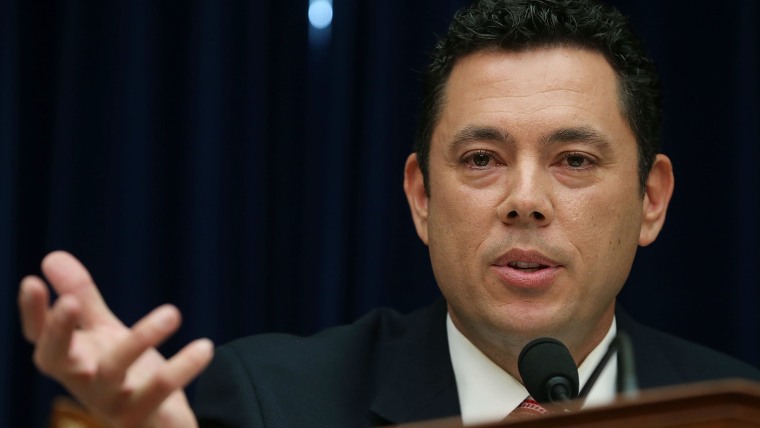It was just a few weeks ago that Rep. Jason Chaffetz (R-Utah) declared he'd seen enough of Donald Trump. Shortly after audio surfaced of the GOP presidential nominee boasting about sexual assault, the Utah congressman told a local outlet, "I'm out.""I can no longer in good conscience endorse this person for president," Chaffetz said. "It is some of the most abhorrent and offensive comments that you can possibly imagine.... My wife and I, we have a 15-year-old daughter, and if I can't look her in the eye and tell her these things, I can't endorse this person."The House Oversight Committee chairman's "conscience" apparently changed over the course of 19 days. As Politico noted last night, Chaffetz has gone from supporting Trump, to not supporting Trump, to supporting him again.
Utah Rep. Jason Chaffetz again reversed his position on Donald Trump's presidential candidacy on Wednesday night, saying he'd vote for the Republican nominee but wouldn't endorse him."I will not defend or endorse @realDonaldTrump, but I am voting for him," Chaffetz tweeted Wednesday. "[Hillary Rodham Clinton] is that bad. HRC is bad for the USA."
The far-right Utahan isn't the only congressional Republican to play semantics games this election cycle, but it's worth emphasizing that if an elected official publicly announces he's voting for a presidential candidate, and takes steps to help that candidate win the election, pretending that doesn't count as an "endorsement" is tough to take seriously.What's striking, however, isn't just Chaffetz's weak and malleable principles, and his willingness to put partisanship over his own conscience, but also how increasingly common this shift has become.We talked earlier this week, for example, about Sen. Mike Crapo (R) of Idaho endorsing Trump, then un-endorsing him, then re-endorsing him. We've seen several others make the same move, including Sens. Deb Fischer (R-Neb.) and John Thune (R-S.D.), as well as Reps. Scott Garrett (R-N.J.) and Bradley Byrne (R-Ala.).A variety of elements are at play here. In some cases, these Republicans have faced fierce pressure from their party's radicalized base, so they're flipping because the pressure has grown too intense. It's also likely that many GOP officials expect Trump to lose, but don't want to be blamed if he does -- so they're grudgingly backing him to avoid finger-pointing later.But I continue to wonder if these Republican re-endorsers are a reflection of tightening polls: as the finish line draws closer, partisans feel the gravitational pull of their party's slate. When the "Access Hollywood" recording surfaced, these GOP officials' reactions may have been genuine, but they were also fleeting.For many rank-and-file Republican voters, we're seeing the same pull, with a tribal, "team" instinct overriding their recent disgust.
